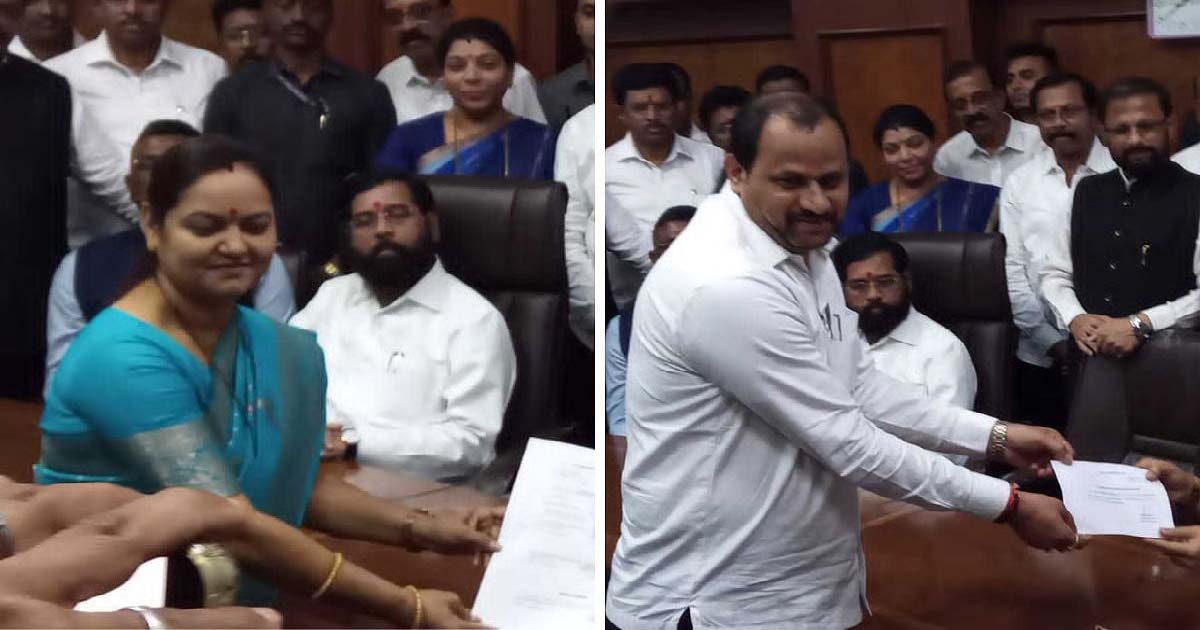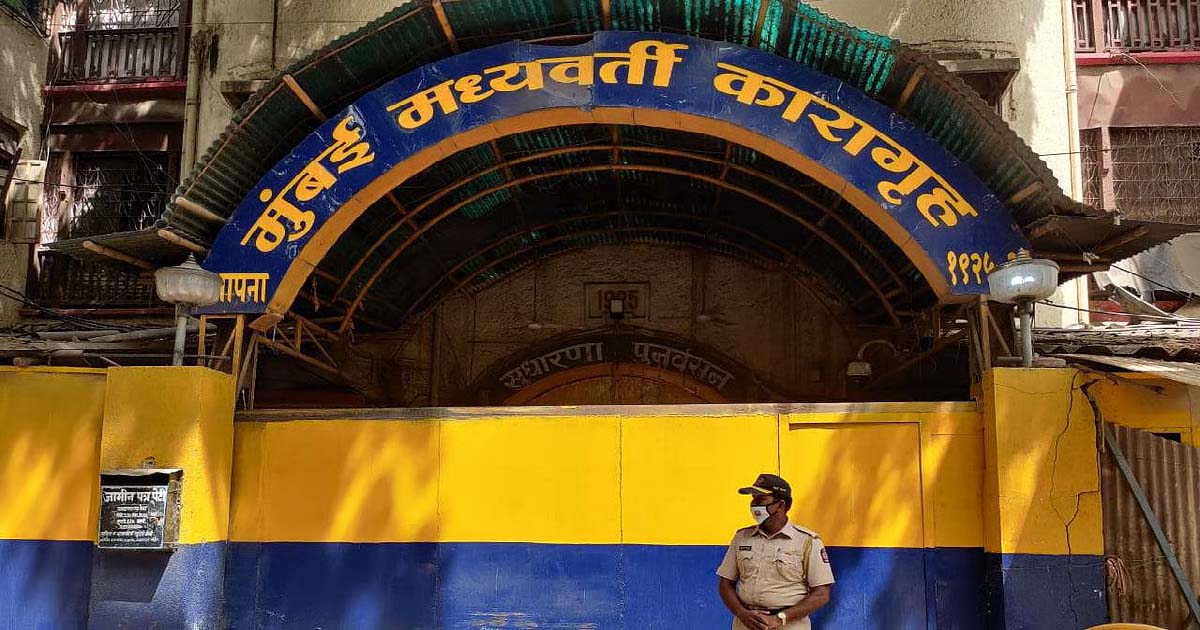National News
Bilkis Bano case: SC notice to Gujarat on plea against release of 11 convicts
The Supreme Court on Thursday sought a response from the Gujarat government on a plea challenging the release of 11 men convicted for the gang-rape of Bilkis Bano and multiple murders during the 2002 Gujarat riots, while clarifying that it did not grant permission for remission to the convicts but instead asked the government to consider.
A bench, headed by Chief Justice N.V. Ramana and comprising Justices Ajay Rastogi and Vikram Nath, said the question is whether the convicts could have been granted remission and if it was within the parameters of the law.
The Gujarat government released the convicts on Independence Day, which has created a huge political controversy.
Justice Rastogi asked senior advocate Kapil Sibal, representing the petitioners: “Day in and day out, remission is granted to convicts of life sentence, what is the exception (in this matter).”
After hearing arguments, the top court issued notice to the Gujarat government and posted the next hearing after two weeks.
It clarified that its May 2022 order merely held that the remission or premature release should be considered in terms of the policy which is applicable in the state where the crime was committed. “I read somewhere the court has granted permission for remission. No, the court said only to consider,” noted the bench.
The bench asked the petitioners’ counsel to make the convicts in the case party in the plea along with the Gujarat government.
The top court observed orally: “Whatever act was committed; the accused have been punished and convicted.”
It also did not allow a plea by a counsel for one of the convicts to hear him first on the preliminary objections against the maintainability of the writ petition.
The Gujarat government counsel opposed the petition on grounds of maintainability. “Writ is not maintainable. They are strangers,” said counsel.
Sibal, representing the petitioners, narrated the grim facts of the case before the bench.
The bench was hearing a petition filed by CPI-M’s former MP Subhasini Ali, journalist Revati Laul, and Prof Roop Rekha Verma.
Eleven convicts, sentenced to life imprisonment, were released from Godhra sub-jail on August 15 after the Gujarat government allowed their release under its remission policy. The convicts had completed more than 15 years in jail.
In January 2008, a special CBI court in Mumbai had sentenced the convicts to life imprisonment for gang-rape and murder of seven members of Bilkis Bano’s family. The Bombay High Court upheld their conviction.
Bano was 21 years old and five months pregnant when she was gang-raped while fleeing the violence that broke out after the Godhra train burning.
The PIL assailed the order of the competent authority of the Gujarat government by way of which 11 persons who were accused in a set of heinous offences were allowed to walk free on August 15, 2022 pursuant to remission being extended to them.
The petitioners contended that grant of remission solely by the competent authority of a state government, without any consultation with the Centre is impermissible in terms of the mandate of Section 435 of the Code of Criminal Procedure, 1973.
Citing the facts of the case, the plea contended that no right-thinking authority applying any test under any extant policy would consider it fit to grant remission to persons who are found to have been involved in the commission of gruesome acts.
Business
Centre’s fertiliser supplies to states scale record high of 530 lakh metric tons in April-December

New Delhi, Jan 30: Fertiliser movement from the Centre to the states on Indian Railways, during the first nine months (April-December) of the financial year 2025-26, reached an all-time high with total supplies crossing 530.16 lakh metric tons to surpass the 500 lakh metric ton mark for the first time during this period, an official statement said on Friday.
This represents a 12.2 per cent increase over the corresponding period of FY 2024–25 and is 8.5 per cent higher than the previous record of FY 2023–24, it said.
The Centre has ensured sufficient availability of all major fertilisers across states, including the supply of 350.45 lakh metric tons of urea, against a requirement of 312.40 lakh metric tons in the first nine months (April-December) of the financial year 2025-26. Similarly, in the case of major P&K (phosphorous and potassium) fertilizers including DAP, MOP & NPKS, the total supply reached 287.69 lakh metric tonnes against the requirement of 252.81 lakh metric tonnes, consistently exceeding the assessed requirement and ensuring uninterrupted availability, the statement said.
Faster and smoother movement of fertiliser rakes enabled timely supplies to states, ensuring that farmers did not face any shortages during the critical stages of cultivation. Department of Fertilisers worked in close cooperation with the Ministry of Railways and stated that such coordinated efforts have helped ensure adequate availability of fertilisers across the country, the statement added.
During this period, average rake loading on Indian Railways increased to 72 rakes per day in July 2025, rose to 78 rakes per day in August 2025 and reached 80 rakes per day in September 2025, according to the official figures.
Urea rake movement rose to 10,841 rakes, registering an 8 per cent increase over last year, while P&K fertilisers recorded 8,806 rakes, marking an 18 per cent growth. Enhanced coordination with the Ministry of Railways, ports, state governments, and fertiliser companies ensured seamless and timely supply to states during peak agricultural seasons, the statement said.
Ensuring the timely availability of fertilisers to farmers has remained one of the government’s highest priorities. In this direction, the improved coordination between the Ministry of Railways and the Department of Fertilisers during Kharif 2025 and the ongoing Rabi season was clearly visible at the ground level. The states also took concerted measures to ensure last-mile availability to farmers, the statement added.
National News
Shinde Sena’s Sharmila Pimpolkar Set To Become Thane Mayor, BJP’s Krishna Patil Deputy Mayor; Both Elected Unopposed

Thane: Sharmila Rohit Pimpolkar of the Shiv Sena (Shinde faction) is set to be appointed as the Mayor of the Thane Municipal Corporation (TMC), while Krishna Dadu Patil of the Bharatiya Janata Party (BJP) will assume charge as the Deputy Mayor. Both leaders were elected unopposed after filing their nominations on the final day for submitting nomination papers for the mayoral posts.
Pimpolkar filed her nomination for the Mayor’s post, while Patil submitted his papers for the Deputy Mayor’s position. No other candidates entered the fray for either post, clearing the way for their unopposed election. The official announcement confirming their appointments is scheduled to be made on February 3.
A meeting related to the mayoral election process was held at the Thane Municipal Corporation headquarters in the presence of Deputy Chief Minister Eknath Shinde. Several senior leaders attended the meeting, including Transport Minister Pratap Sarnaik, Thane MP Naresh Mhaske, BJP MLA Niranjan Davkhare, Ravindra Phatak and other party functionaries.
Meanwhile, reports indicated that the Shinde Sena has categorically refused the BJP’s demand to rotate the Mayor’s post for two years in Thane. In the recently concluded Thane Municipal Corporation elections, the Shinde Sena emerged as the dominant force with 75 seats, while the BJP secured 28 seats. Citing its clear numerical strength, the Shiv Sena has reportedly conveyed at the local level that it will not hand over the Mayor’s post to the BJP even for a year.
Following the refusal, BJP leaders are said to have staked claim to key power centres within the civic body, including the Standing Committee, Transport Committee, various subject committees, ward committees and the Education Board. Shinde Sena reportedly proposed that the BJP accept the Deputy Mayor’s post, while committees and ward panels could be shared between the two parties for fixed tenures of three and two years respectively.
Crime
Mumbai Crime: Undertrial Prisoner Assaults Policeman Inside Arthur Road Jail, Case Registered

Mumbai: A shocking incident has come to light from Mumbai’s Arthur Road Jail, where an undertrial prisoner allegedly assaulted a police constable on duty.
The accused, Lokendra Uday Singh Rawat (35), is reported to have headbutted Police Constable Hani Baburao Wagh (30), causing injuries to his nose, and also abused and pushed other on-duty police personnel. A case has been registered in this connection at the N. M. Joshi Marg police station.
According to the FIR, the complainant, Police Constable Wagh, is attached to Armed Police Division–2, Tardeo. On January 27, he reported for his 24-hour day-duty shift at Arthur Road Jail at around 8 am and was assigned security duty at the main entrance of the prison.
At around 9 pm, Armed Police Constables Suresh Sandu Mali and Sachin Chavan brought undertrial Lokendra Rawat back to the jail after producing him before the Dindoshi Court. Rawat allegedly appeared agitated and, after entering the jail premises, sat near the gate and began verbally abusing the police personnel on duty.
Constable Wagh asked Rawat to calm down and refrain from using abusive language. However, Rawat allegedly became more aggressive and continued shouting abuses. When Wagh approached him again to pacify the situation, Rawat suddenly headbutted him on the nose with force.
As a result, Constable Wagh sustained injuries and started bleeding. Fellow constables Sachin Chavan and Suresh Mali immediately intervened, restrained the accused, and informed the on-duty prison authorities about the incident. Rawat was subsequently sent for medical examination to Sir J.J. Hospital.
After receiving medical treatment, the injured constable lodged a formal complaint on January 28 at the N. M. Joshi Marg police station. Based on the complaint, police have registered a case against the undertrial under relevant sections of the Bharatiya Nyaya Sanhita (BNS). Further investigation is ongoing.
-

 Crime3 years ago
Crime3 years agoClass 10 student jumps to death in Jaipur
-

 Maharashtra1 year ago
Maharashtra1 year agoMumbai Local Train Update: Central Railway’s New Timetable Comes Into Effect; Check Full List Of Revised Timings & Stations
-

 Maharashtra1 year ago
Maharashtra1 year agoMumbai To Go Toll-Free Tonight! Maharashtra Govt Announces Complete Toll Waiver For Light Motor Vehicles At All 5 Entry Points Of City
-

 Maharashtra1 year ago
Maharashtra1 year agoFalse photo of Imtiaz Jaleel’s rally, exposing the fooling conspiracy
-

 National News1 year ago
National News1 year agoMinistry of Railways rolls out Special Drive 4.0 with focus on digitisation, cleanliness, inclusiveness and grievance redressal
-

 Maharashtra1 year ago
Maharashtra1 year agoMaharashtra Elections 2024: Mumbai Metro & BEST Services Extended Till Midnight On Voting Day
-

 National News1 year ago
National News1 year agoJ&K: 4 Jawans Killed, 28 Injured After Bus Carrying BSF Personnel For Poll Duty Falls Into Gorge In Budgam; Terrifying Visuals Surface
-

 Crime1 year ago
Crime1 year agoBaba Siddique Murder: Mumbai Police Unable To Get Lawrence Bishnoi Custody Due To Home Ministry Order, Says Report






















